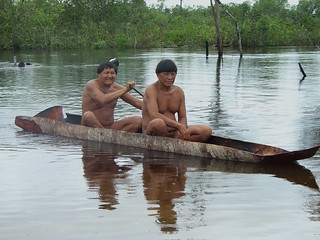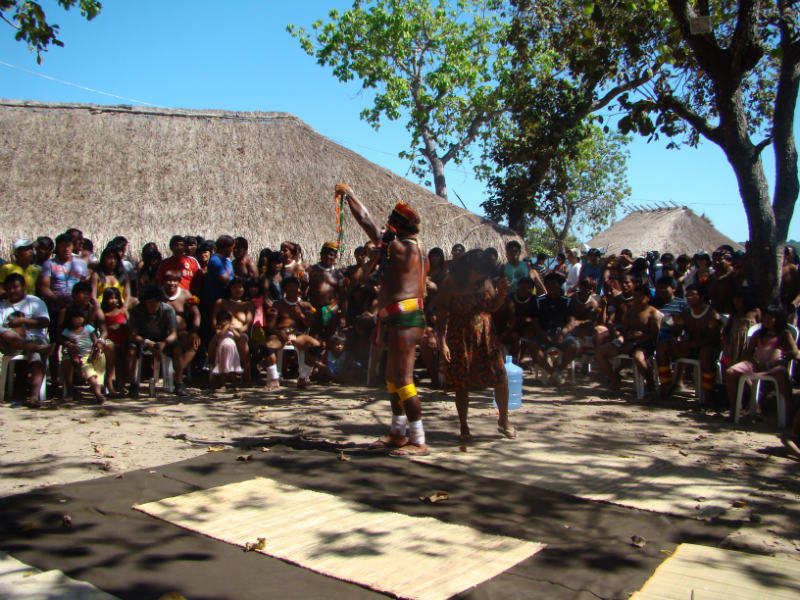 The Kalapalo are one of the sixteen Brazilian indigenous tribes who inhabit the Xingu National Park in the Upper Xingu river region of the Brazilian state of Mato Grosso. They are also one of the four peoples speaking Cariban languages in the area. They have a population of 569 (in 2010). The Kalapalo are a generally peaceful group.
The Kalapalo are one of the sixteen Brazilian indigenous tribes who inhabit the Xingu National Park in the Upper Xingu river region of the Brazilian state of Mato Grosso. They are also one of the four peoples speaking Cariban languages in the area. They have a population of 569 (in 2010). The Kalapalo are a generally peaceful group.
The Kalapalo were the first Xingu tribe to be contacted by the Villas-Bôas brothers, in 1945. Before the arrival of the Villas Boas, the people had sporadic contact with the white man, so that the name Kalapalo was given to this group by white settlers in the late 19th century.
The Cariban dialect of the Kalapalos shows that they have not always lived in the Upper Xingu. The Kalapalo speak a dialect of a language that belongs to the southern branch of the Guyana Carib language family and their closest linguistic relatives are Ye’kuana or Makiritare in southern Venezuela and Hixkaryana language, spoken in the Nhamundá area in Brazil and Guyana.
Before the creation of the Xingu National Park in 1961, the Kalapalos lived at the confluence of the Tanguro and Kuluene, which are tributaries of the river Xingu. Since then, the Brazilian government has convinced them to settle near the Leonardo station, where medical treatment was made available. However, they frequently return to their former villages where they can grow cassava and cotton and where they can gather shellfish for art and craft-making purposes.
The Kalapalos have a strict code of ethics established by them that distinguish them from other peoples inhabiting the Upper Xingu. They all collectively share their culture as their fishing. Any public quarrels and fights are a serious violation of their code and are punished. They refrain from hunting land animals for fur by simply eating aquatic animals including fish.
Adapted from Wikipedia’s article on the Kalapalo People


